Arts
Examining the role of The Arts as a catalyst for healing, transformation and action
Introduction
The practice of Art—in its infinite forms, functions and implications—is the most accessible and universal way of constructing meaning out of the world we inhabit.
Our Philosophy: The Arts are not just for experts. They are not solely for the enjoyment of the elite. They are not a superfluous extravagance. The Arts are for us all, expert and novice alike. They are not just an end in and of themselves, but a means. They shape, and are shaped by the world we inhabit.
Students in the Arts Scholars program gain a deeper understanding of the impact of art as a means to explore society and culture against the backdrop of our individual differences and shared experiences.
What you can expect: No matter your major, area of artistic interest, or skill level, as a member of our community, you will be challenged to strengthen your personal artistic skill set, experiment with new and different art forms, and gain a deeper understanding of the value of the arts in our personal and collective lives. We will investigate the power of the arts to:
- Communicate difficult concepts
- Advocate for social change
- Investigate the human experience
- Explore our own identities
- Develop our capacities as creative problem solvers and critical thinkers
- Reinforce, but also upend, existing systems of inequality and oppression
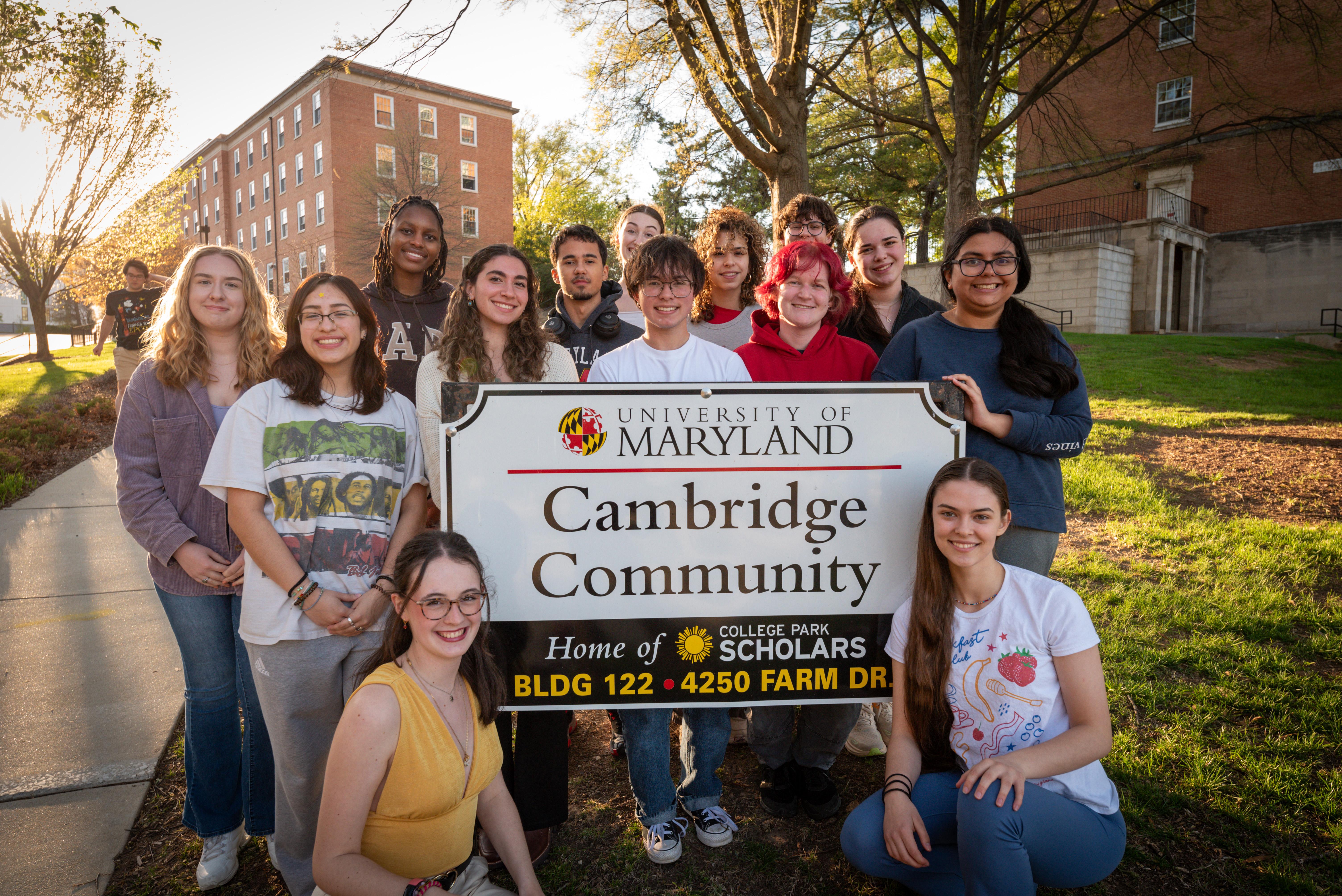
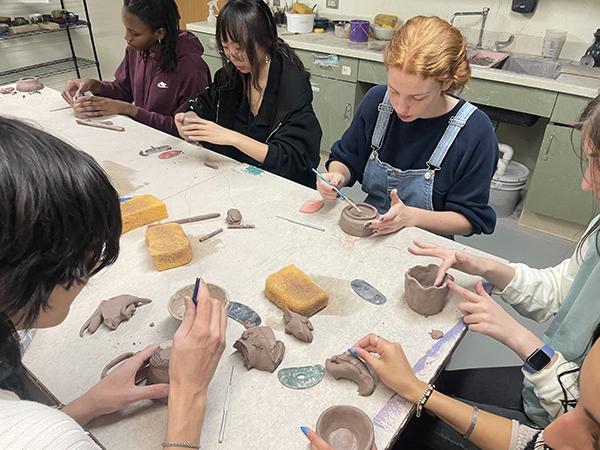
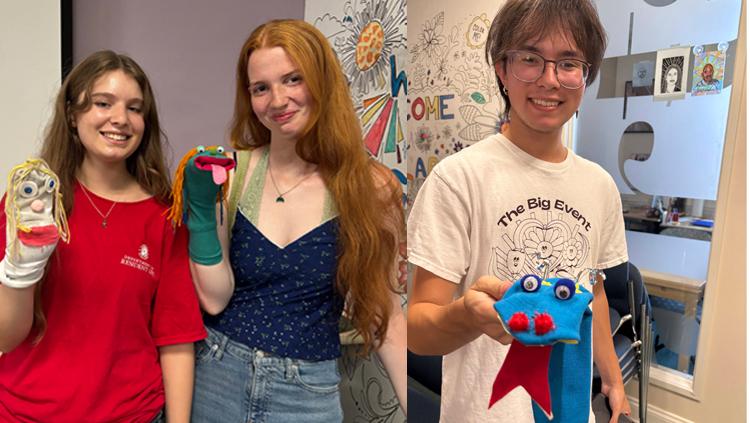
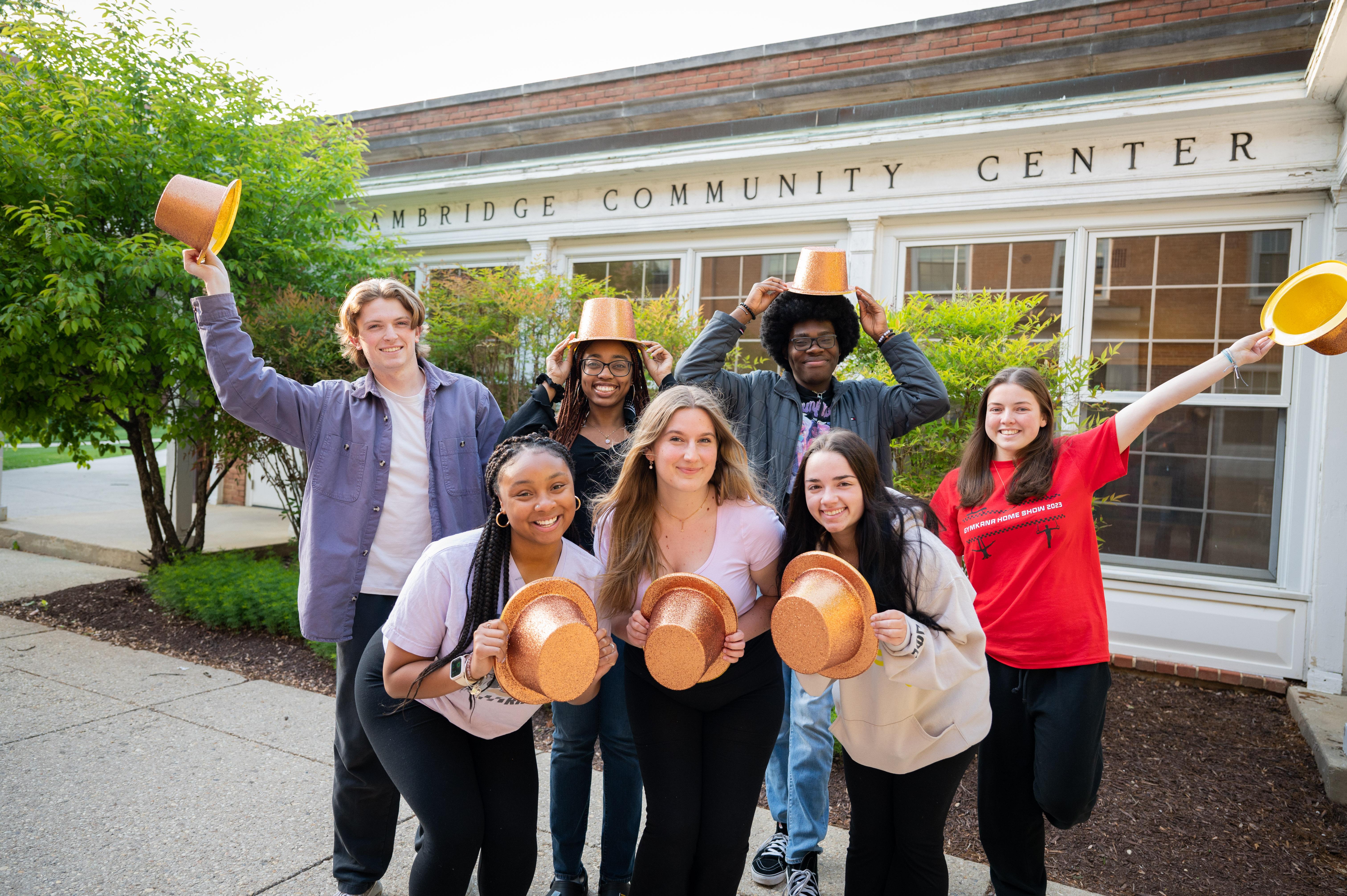
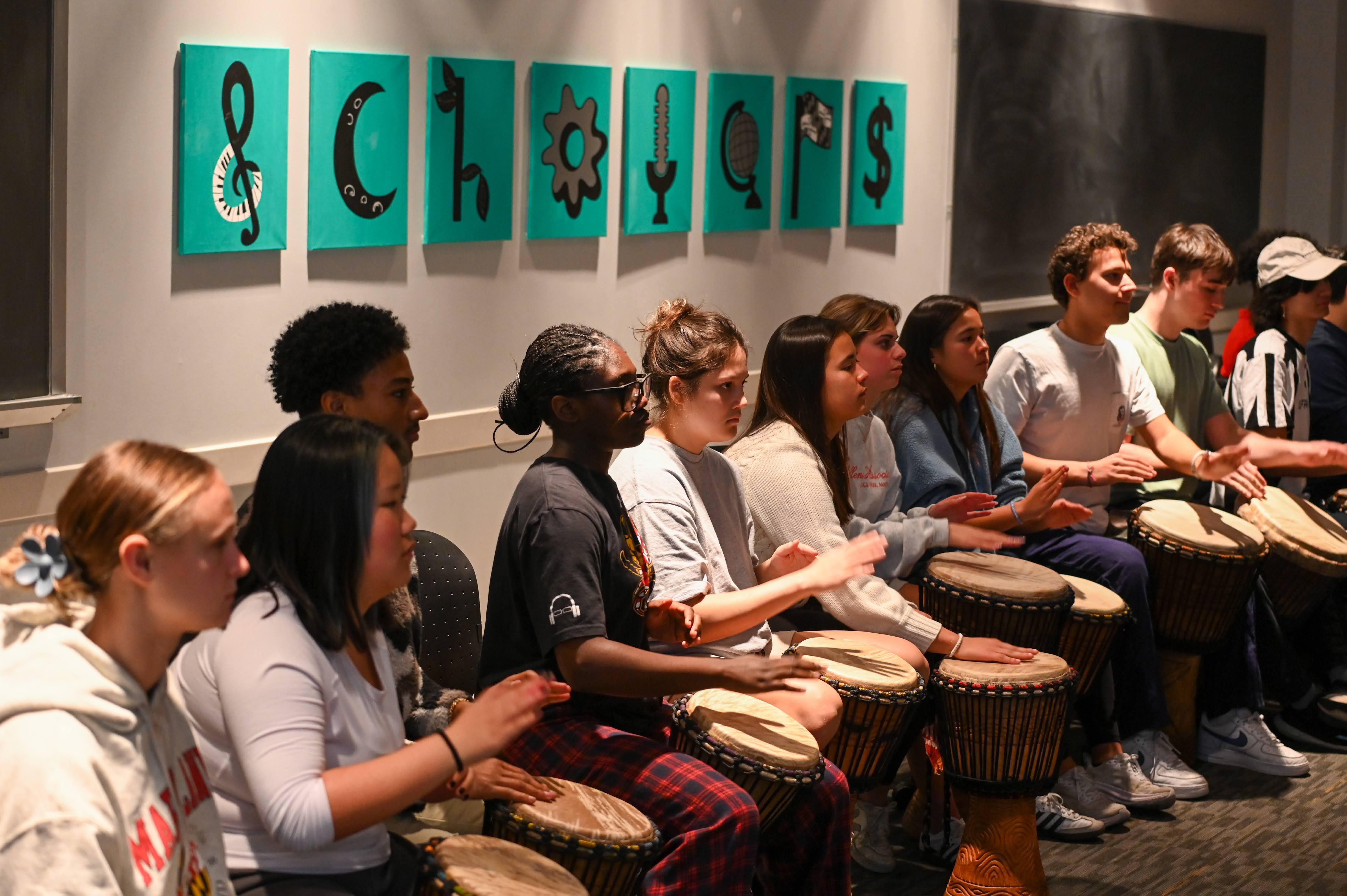
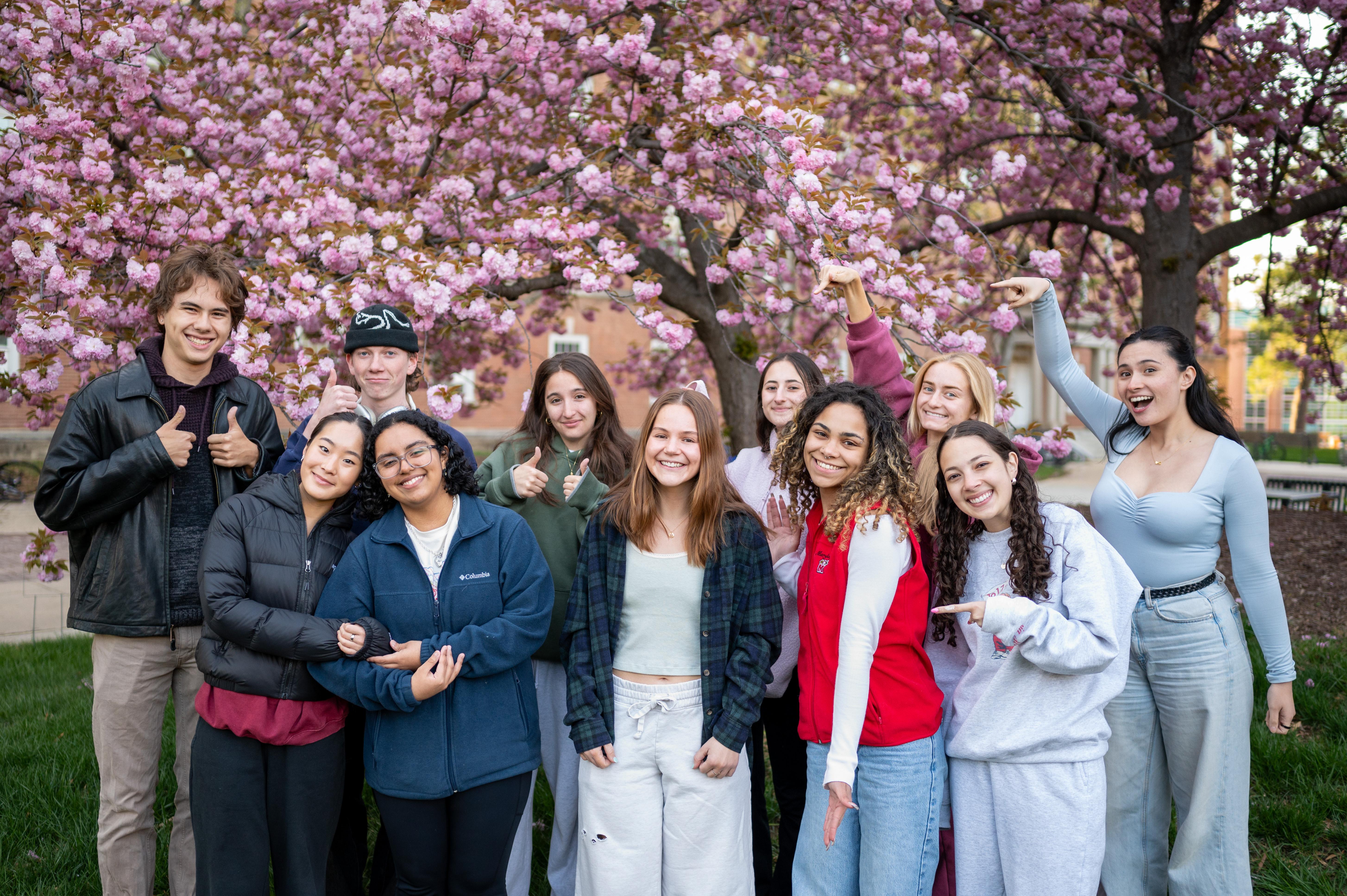
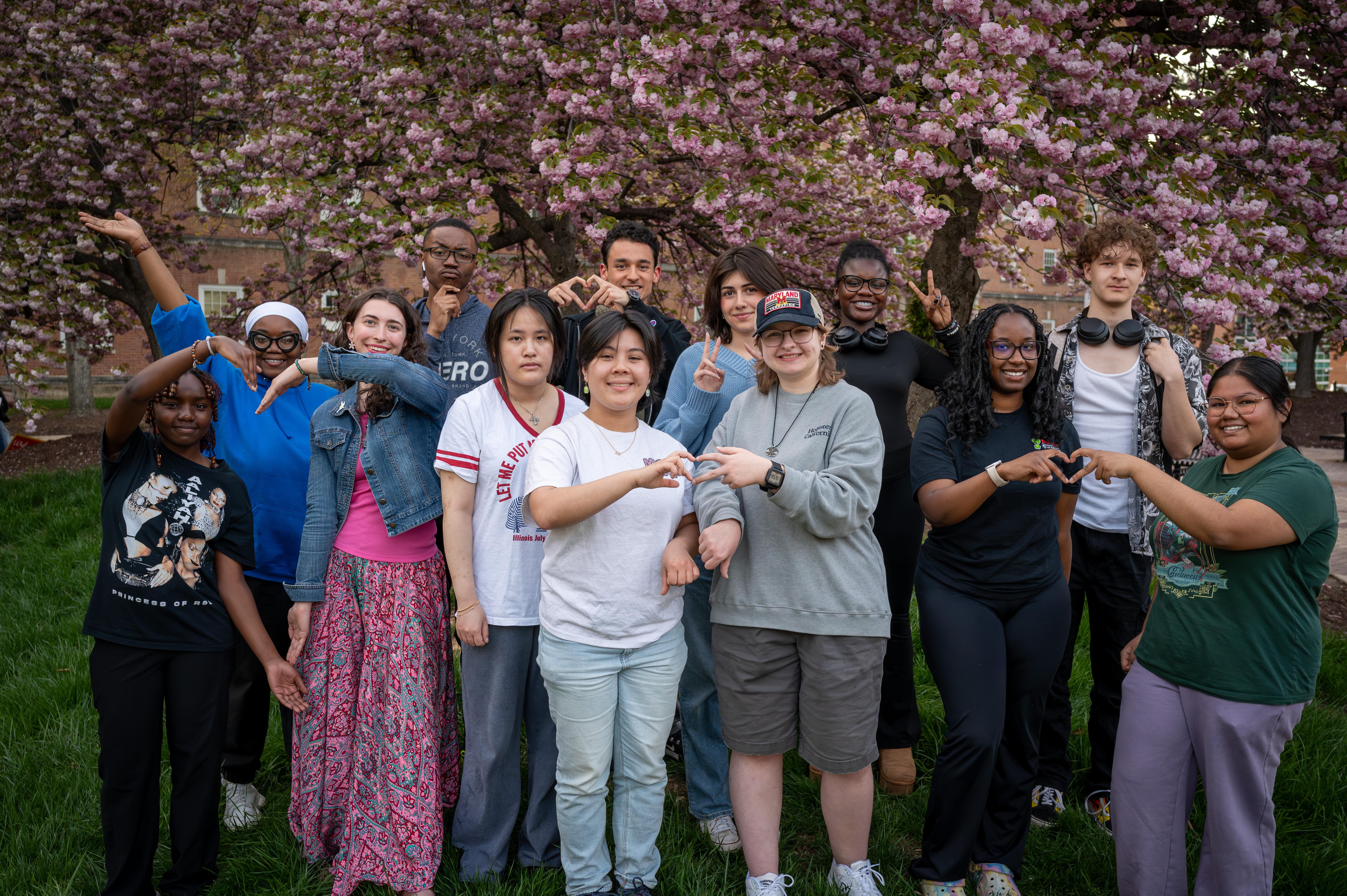
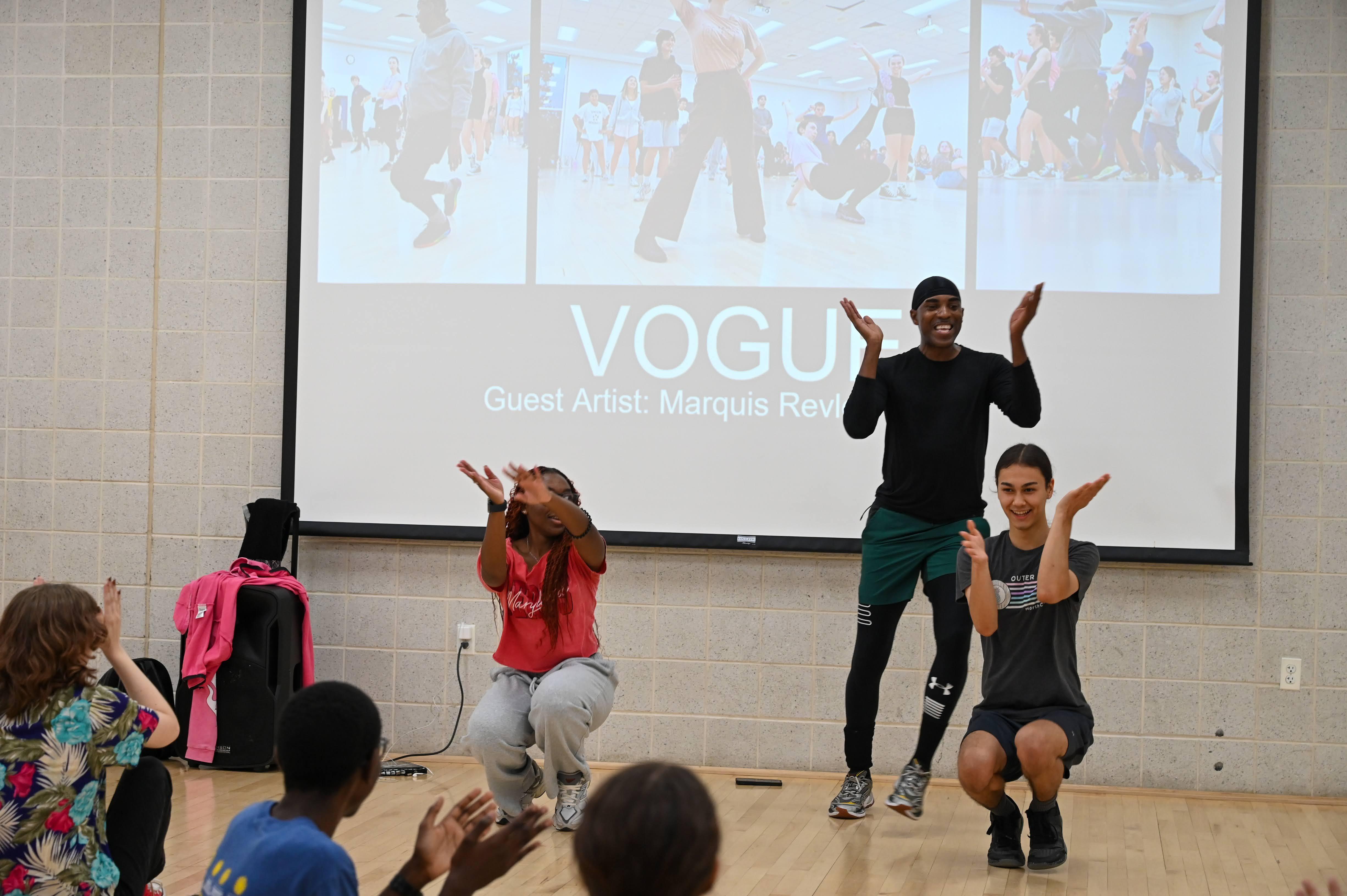
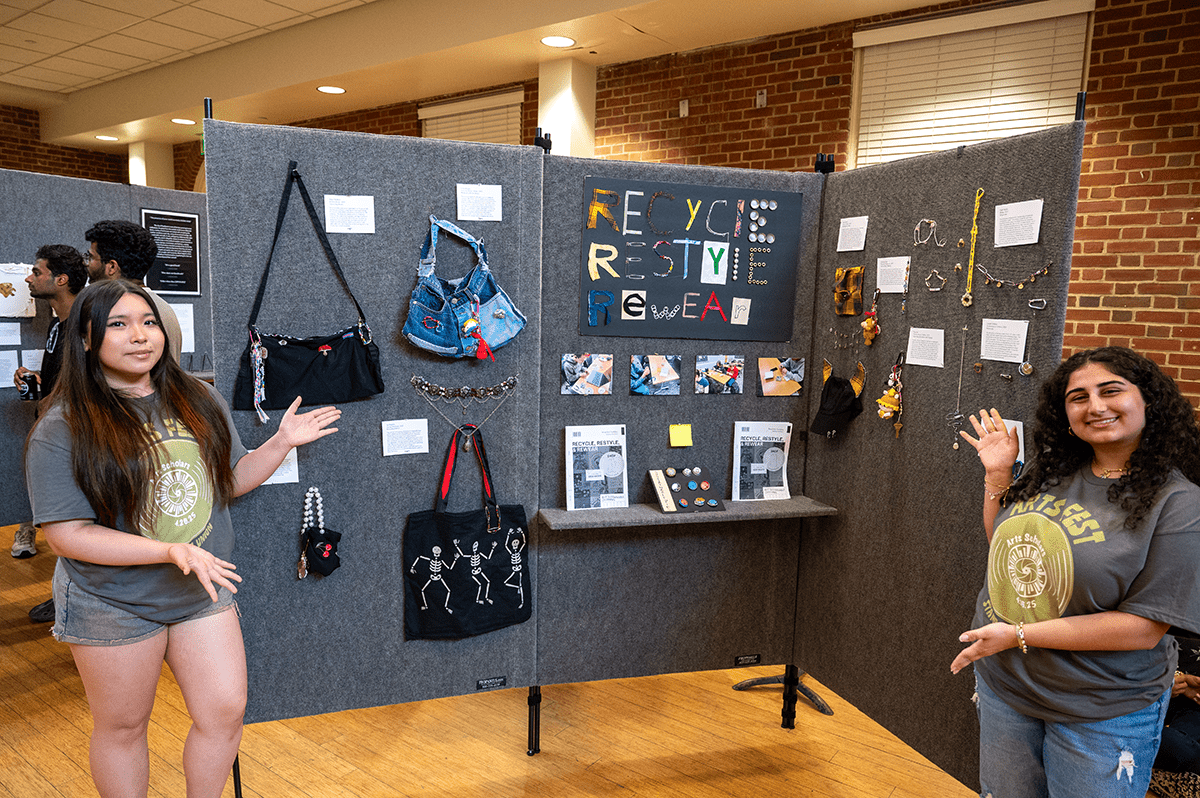
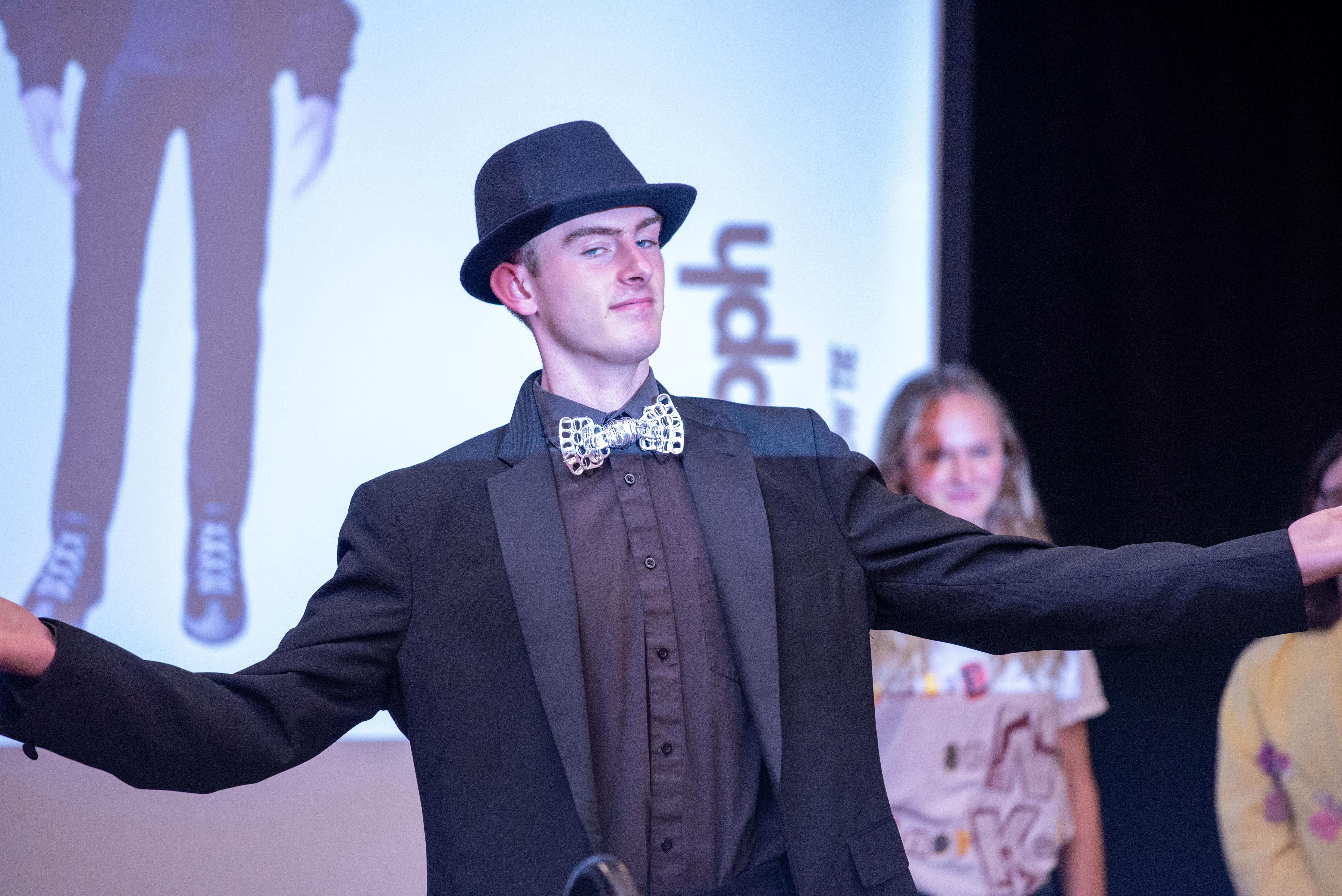
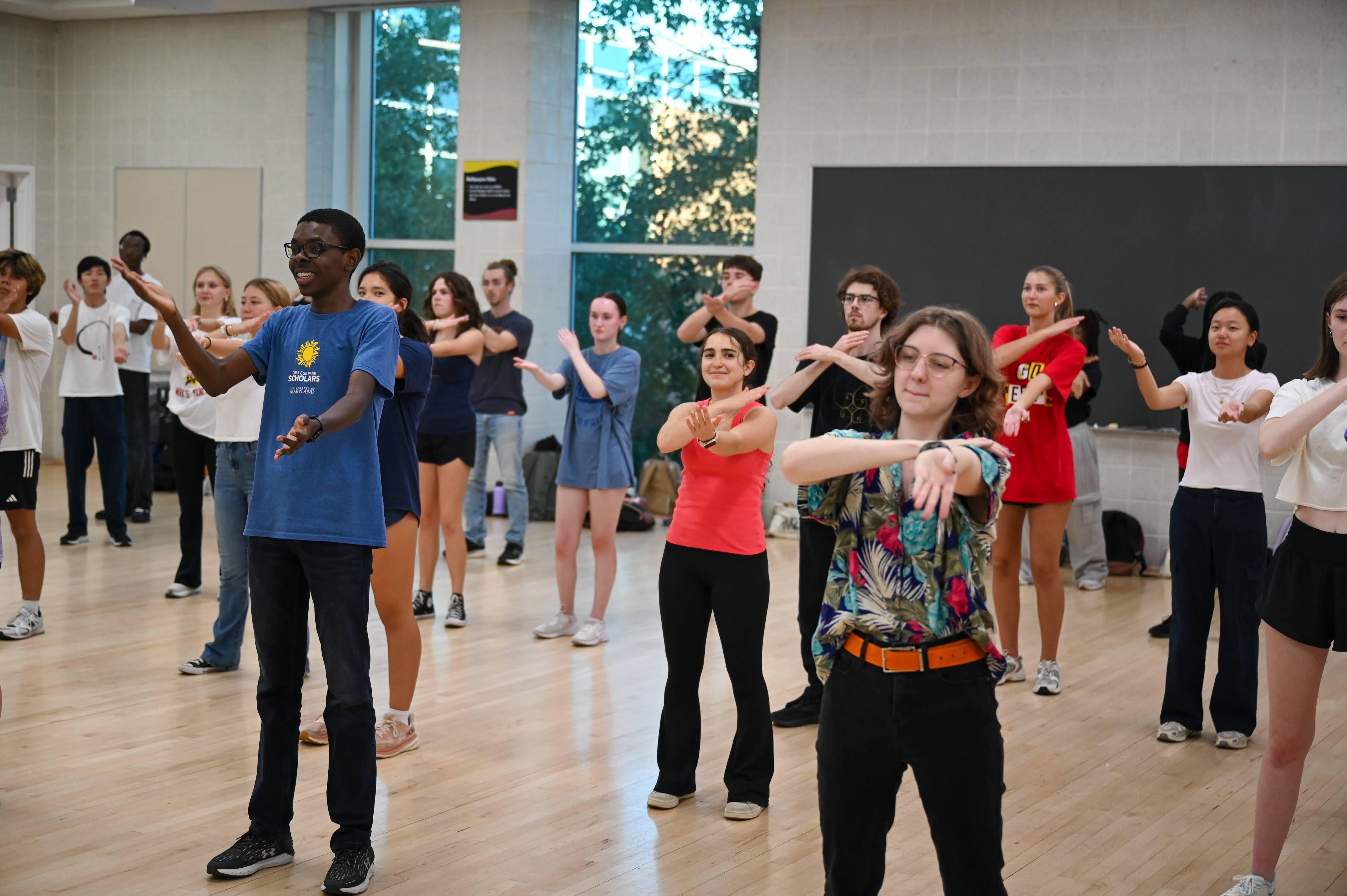
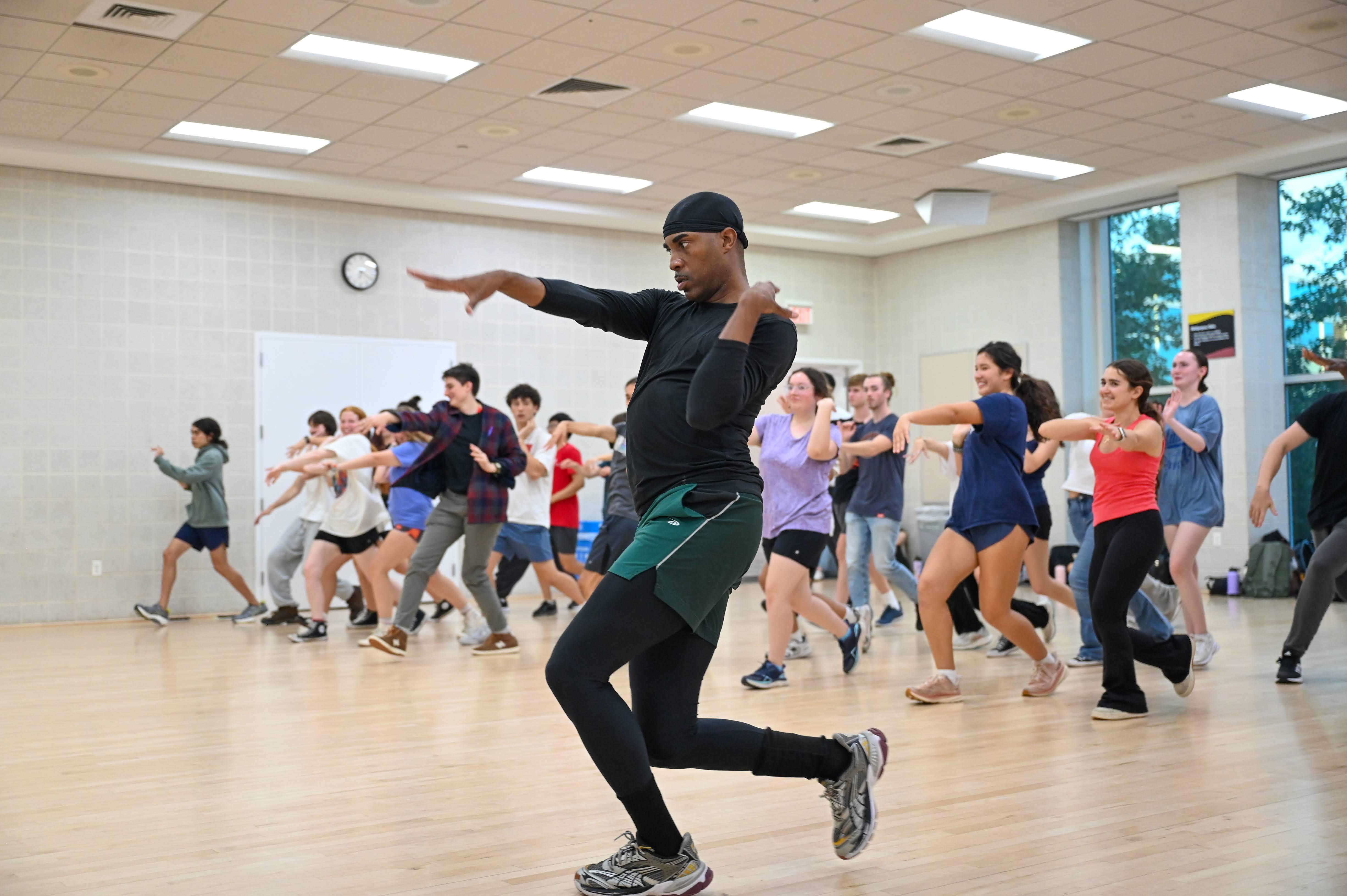
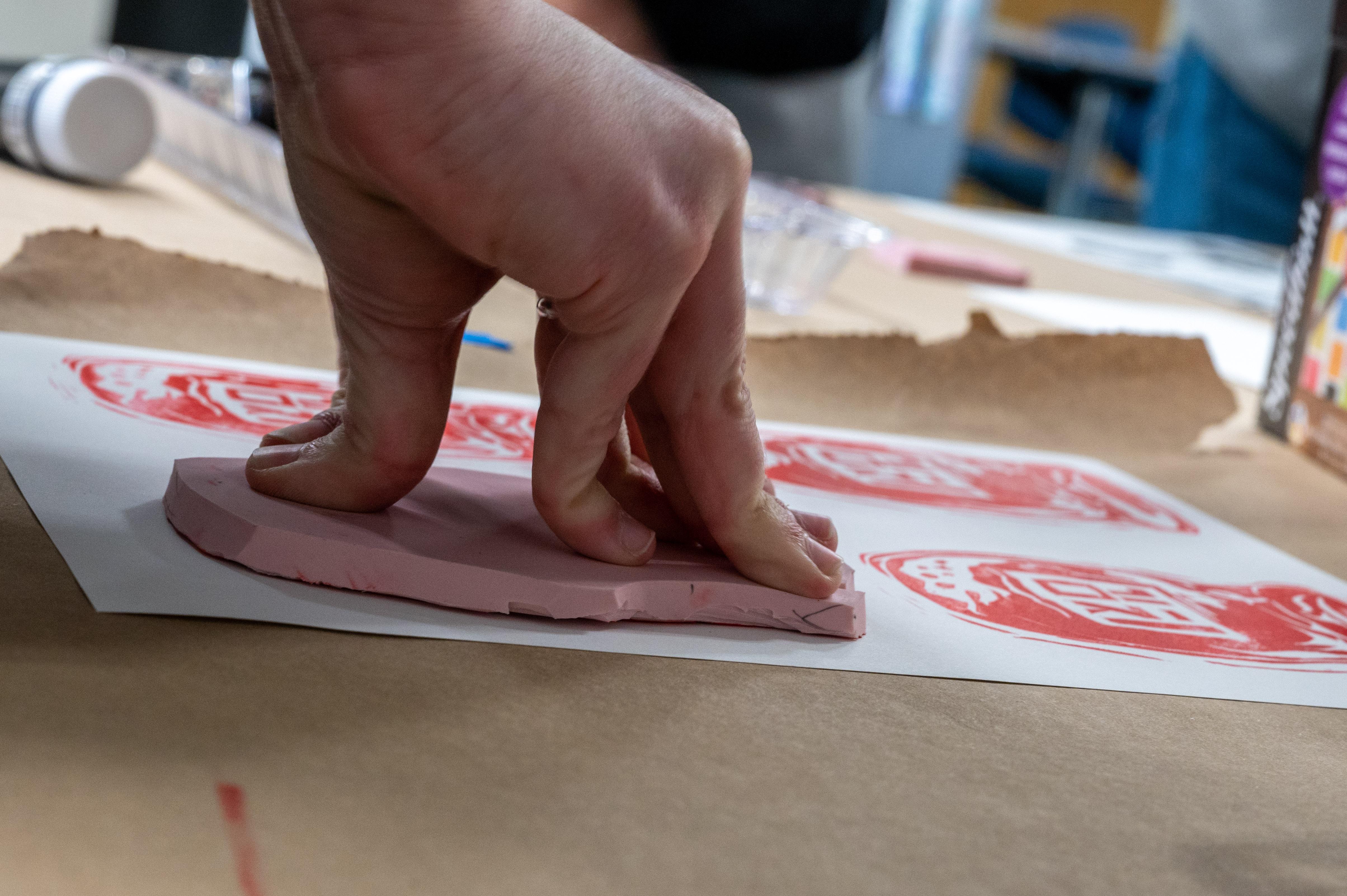

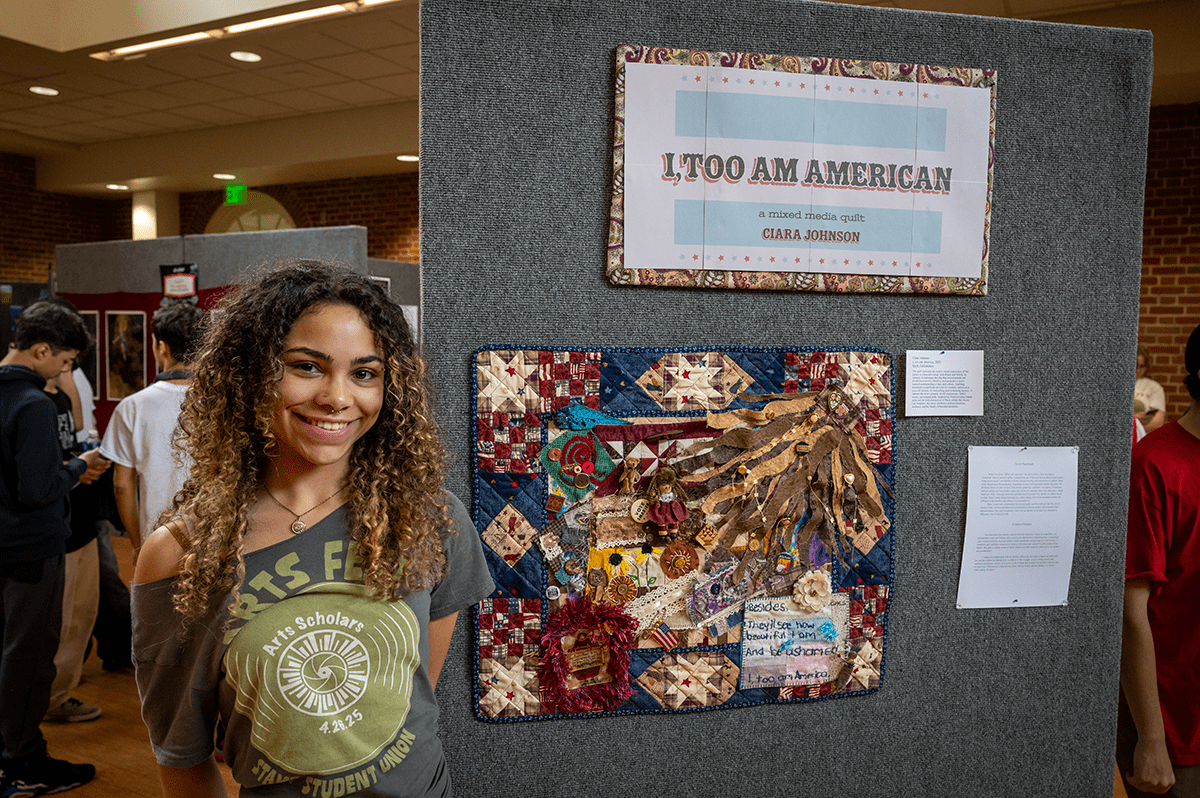
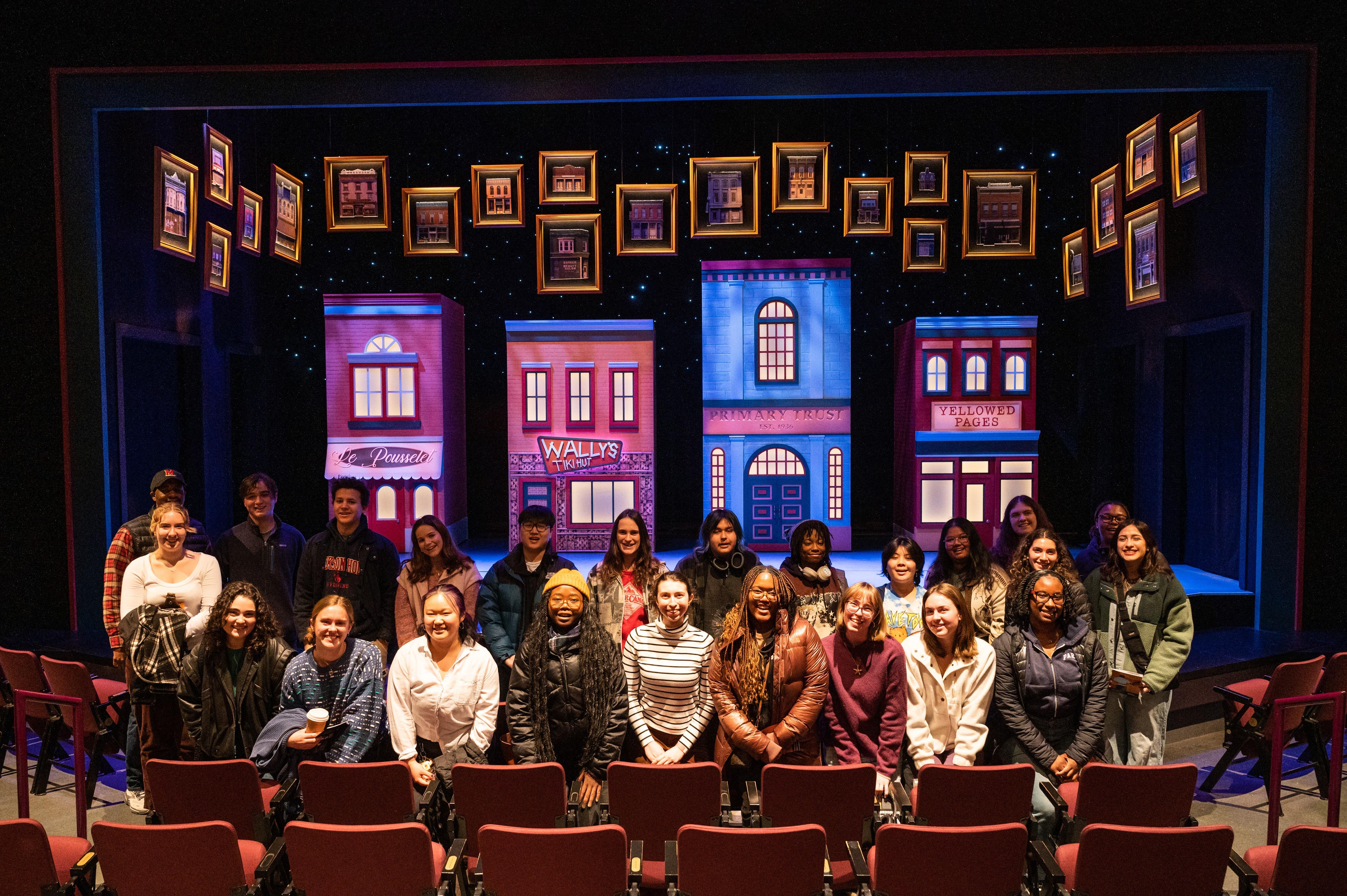
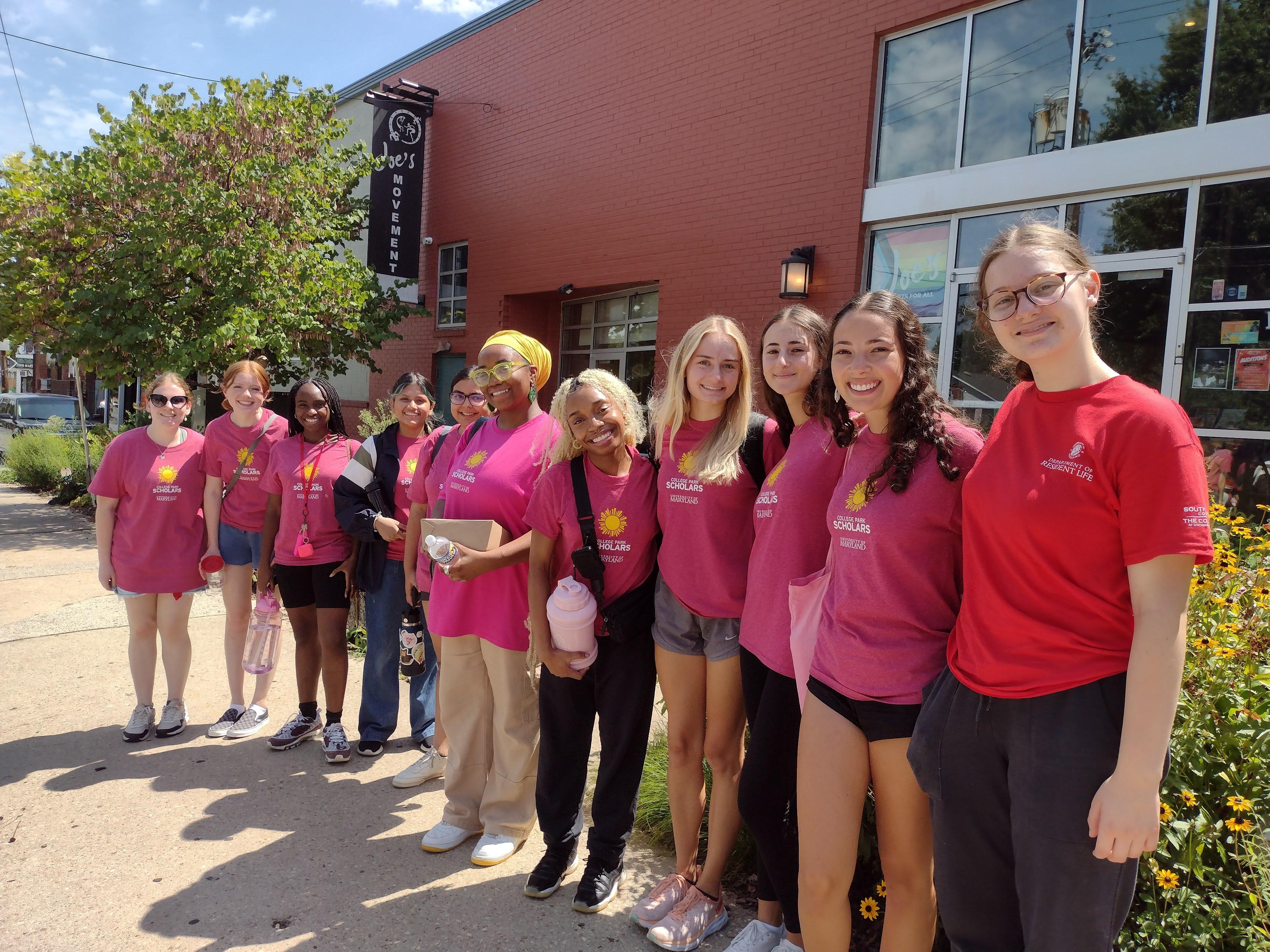
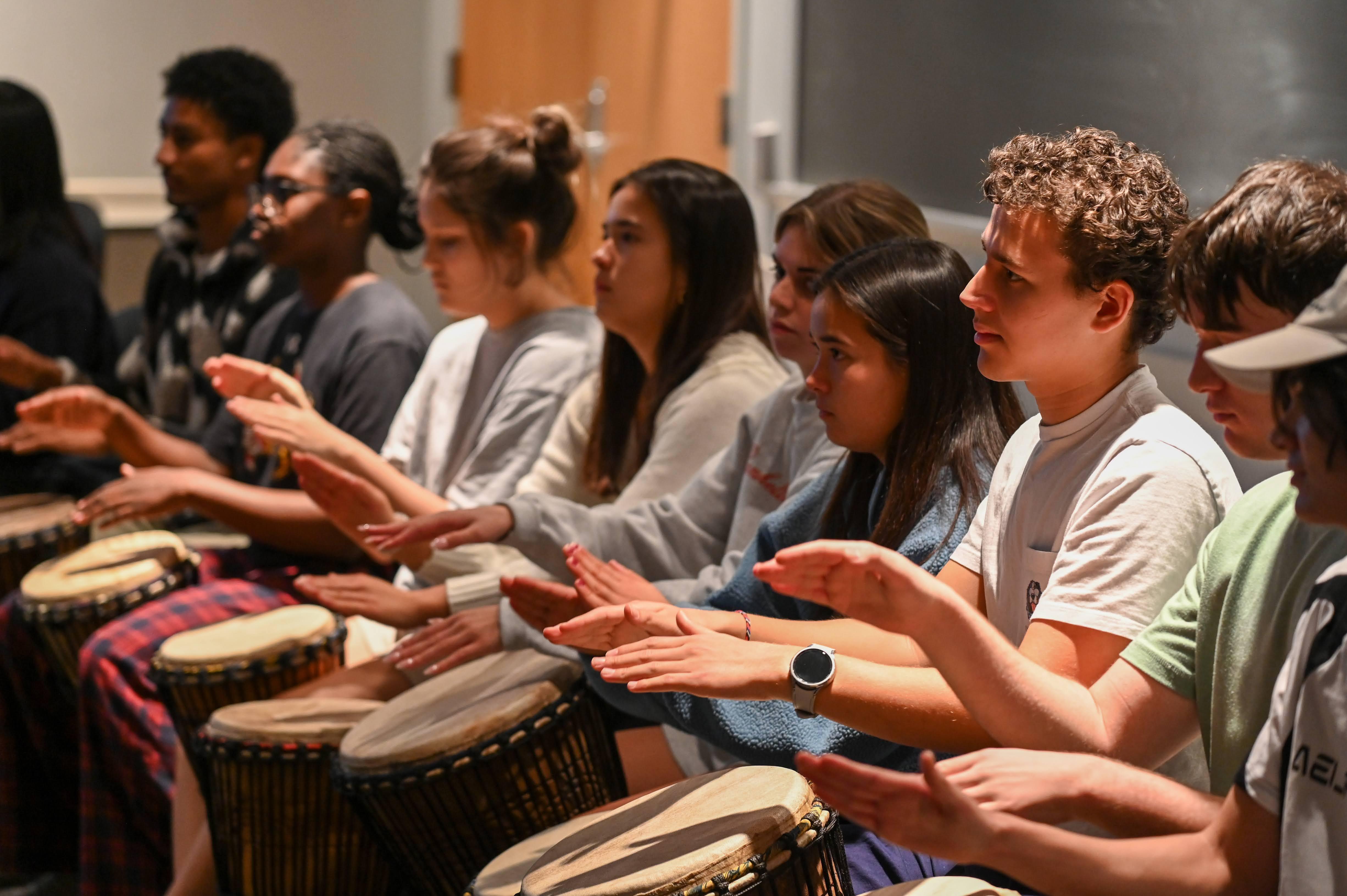
Colloquium and Lecture Topics
Through a mix of lectures, discussions, and guest artist workshops, and experiential projects, students consider (see our most recent “Year in Review” page for photos!):
- Vogue Dancing: How can art be used as a tool for resilience, resistance, and social chance?
- Artistic Consumption: How is artistic “taste” shaped by our social identities?
- Creative Research: How can empirical research, rapid iteration, and prototype testing improve your creative process?
- Spoken Word Improv: How can the principles of improv inform and improve our everyday lives?
- Campus Galleries: How can slow-looking help us combat the pressures of a frenzied world?
- West African Drumming: How can music build community, tell stories, and promote intercultural understanding?
I have been challenged to think differently, work cooperatively, embrace creativity and, most importantly, go beyond the limits I have set for myself. Because of this program, I can confidently say I feel infinitely more prepared for the “real world,” and for that confidence and growth, I could never be more grateful.
Other Learning Opportunities
Outside the classroom, Arts Scholars have many other opportunities….
Experience the arts first hand:
- Field trips: Each semester students visit locations such as The Clarice Performing Arts Center, the Everyman Theatre in Baltimore, the National Gallery of Art, and the National Museum of African American History and Culture.
- Maker Mixer: Teaching Assistant led community building events that include crafting, visiting campus galleries and maker-spaces, and attending shows on campus.
Creative Capstones:
- Sophomores develop capstone projects - identifying a social issue of significance to them to be explored through an artistic medium of their choosing. The capstone project is about your unique view of the world and what you want your audience to understand or experience as a result.
- All capstones are displayed at ArtsFest- an annual exhibition of student work in the Stamp Student Union.
Leadership opportunities:
- Arts Media Team: Social Media & Newsletter assistants work with Arts Faculty to research, draft, and publish the weekly newsletters and Instagram posts to the community.
- Arts Teaching Assistants: Arts Scholars graduates build their skills and experience leading discussions, developing events, and serving as mentors to current students.
Curriculum Overview
Over the two-year program experience (four semesters), students will complete up to 6 credits of supporting courses that will count toward your Arts Scholars citation. In most cases, these will also fulfill General Education requirements. Note that your Scholars courses—colloquiums, capstone practicum and supporting courses—will generally be in addition to any courses you take to satisfy major requirements.
The following represents a typical two-year curriculum, but individual schedules may vary. Details about courses and requirements can be found on the Arts Citation Checklist.
| SEMESTER | COURSE | CREDITS |
|---|---|---|
| Semester 1 | CPSA 100: Colloquium I | 1 credit |
| Semester 2 | CPSA 101: Colloquium II | 1 credit |
| Semester 3 | CPSA 200: Colloquium III | 1 credit |
| Semester 4 | CPSA 201: Colloquium IV | 1 credits |
| CPSA 240: Service Learning; or CPSA 250: Research (DSSP); or CPSA 260: Peer Teaching (DSSP) |
2 credits 2 credits 2 credits |
|
| Semester 1, 2, 3, or 4 | Supporting Course (var. Gen Ed) Supporting Course (var. Gen Ed) Supporting Course (DVUP or DVCC) |
3 credits 3 credits 1-3 credits |
Sponsoring College
Faculty
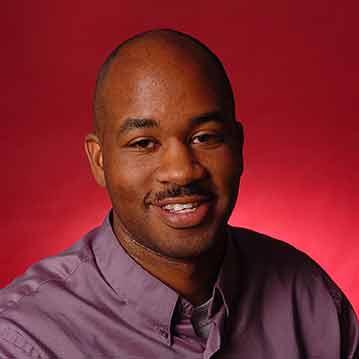
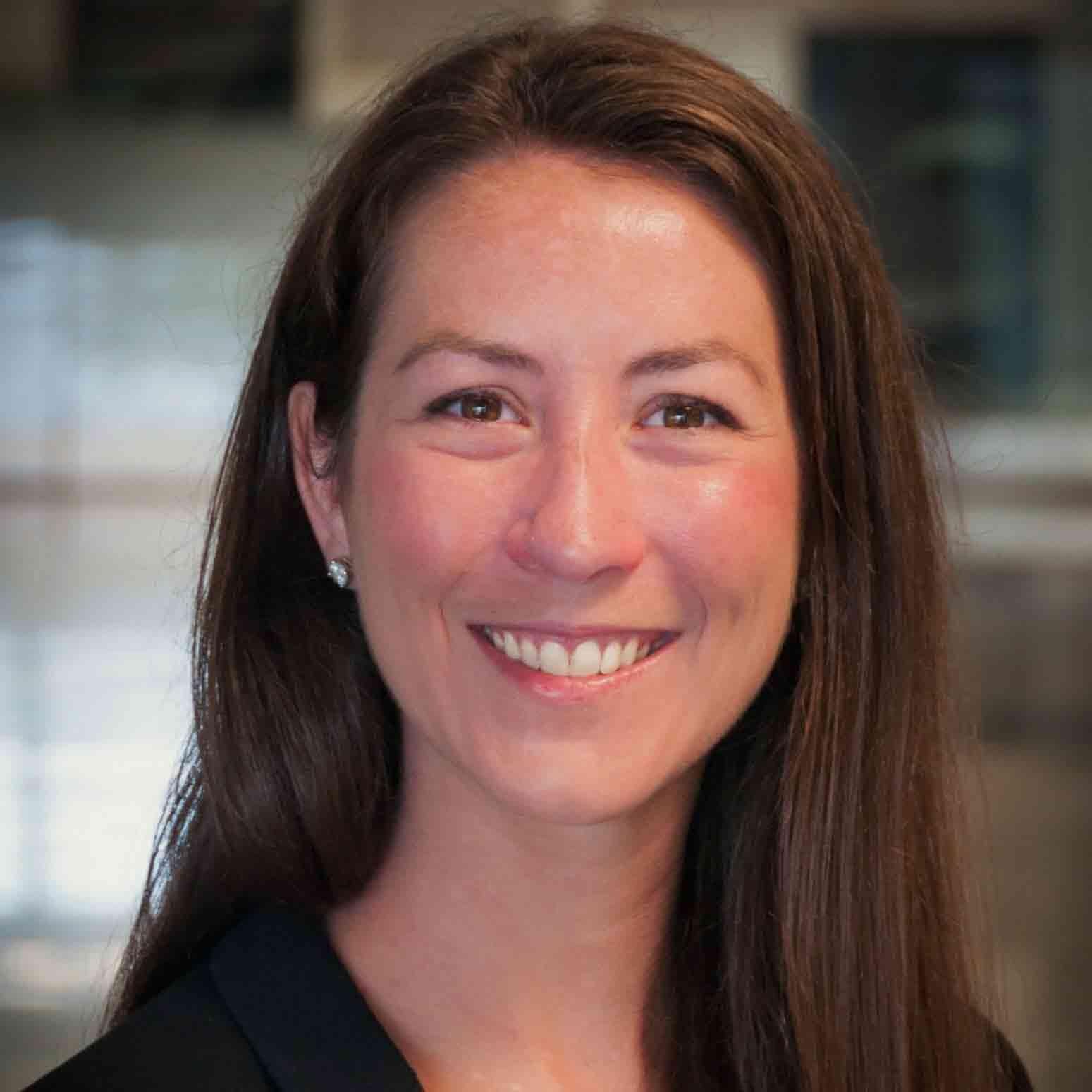
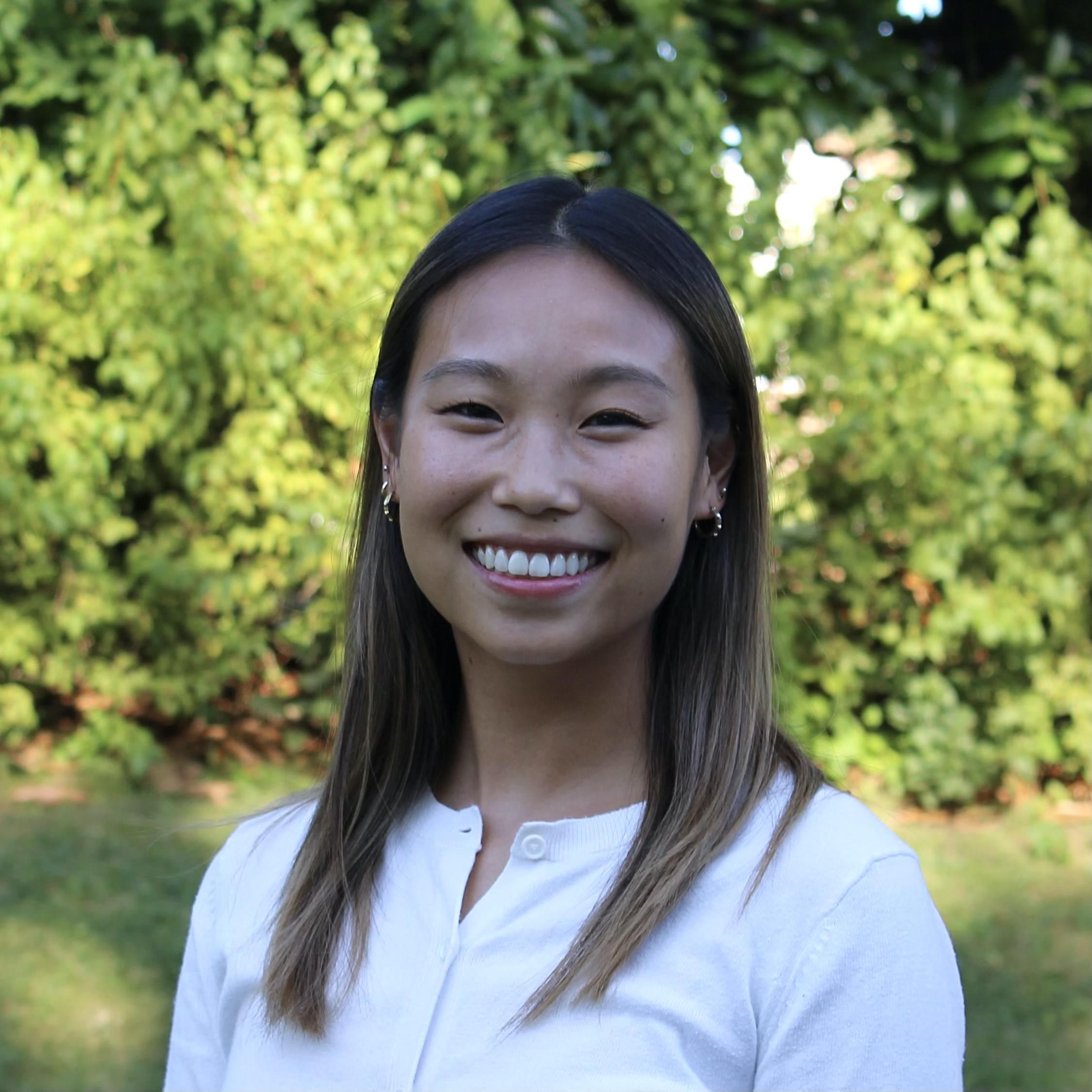
The Diamondback: UMD students' dance workshop highlights Japanese Butoh style, May 2022
Arts News
UNWIND Magazine Returns to Highlight Media Scholars, Campus Life at UMD
COLLEGE PARK, MD – After a hiatus driven by the COVID-19 pandemic, UNWIND Magazine is back with a pilot issue that showcases the talent of University of Maryland (UMD) Media, Self and Society (Media) Scholars and offers a fresh perspective on life on and around campus. Written and produced by students, the relaunched UNWIND brings a new look and lively content that dives into the heart of the Terp experience.The pilot issue features a diverse range of stories and visuals, including:
Pair of Scholars Advance to Do Good Challenge Finals
Anticipation continues to build as 2025 Do Good Challenge finalists prepare to take to the stage in the annual pitch competition for a share of more than $40,000 in prizes. On Tuesday, April 22, the finalists will share more about their work and impact with an audience of hundreds and a panel of expert judges. The teams were selected from groups and organizations across campus that are tackling issues ranging from providing health education to reducing health disparities around the world to educating low-income youth on how to become entrepreneurs. This is the 13th annual Do Good Challenge hosted by the Do Good Institute, based in the School of Public Policy.
STS Alums Shine at Lockheed Martin Ethics in Engineering Competition
At Lockheed Martin's Ethics in Engineering annual case competition, academic institutions, each represented by a two-student undergraduate team and accompanying faculty, present their solutions to a fictional case involving ethical, business and engineering dilemmas. In addition to the hands-on opportunities for students to learn about Lockheed Martin and its technologies, the annual event compels students to think about the importance of ethics in the workplace and the various real-life dilemmas that can arise, especially in the multifaceted and fast-paced world of technology.
Meet Maryland's Unofficial Mascots
Testudo reigns as the University of Maryland’s ultimate mascot—that’s undisputed. But across campus, other animals represent their units in a more intimate, informal capacity.Learn more about Environment, Technology and Economy's (ETE) unofficial mascot, Fiona The Brave Knight, and her relationship with the program. “Students miss their pets at home," said Tim Knight, ETE program director.
‘Reclaiming Roots’ panel highlights stories of land, culture and community
The Environment, Technology and Economy program hosted its annual “Reclaiming Roots” panel, spotlighting the experiences of Black, Indigenous, and other farmers of color in Maryland.This panel, co-hosted by held in the Edward St. John Learning and Teaching Center, was co-sponsored by the Institute of Applied Agriculture and College Park Scholars programs Justice and Legal Thought; and Science, Technology and Society.
Remembering Beth Pattison
Another of the Scholars founders has passed on. Beth Pattison, who was key to developing the College Park Scholars administrative infrastructure, died December 23, 2024. Beth served as an associate director in Scholars from 1994 until her retirement in 2003.

